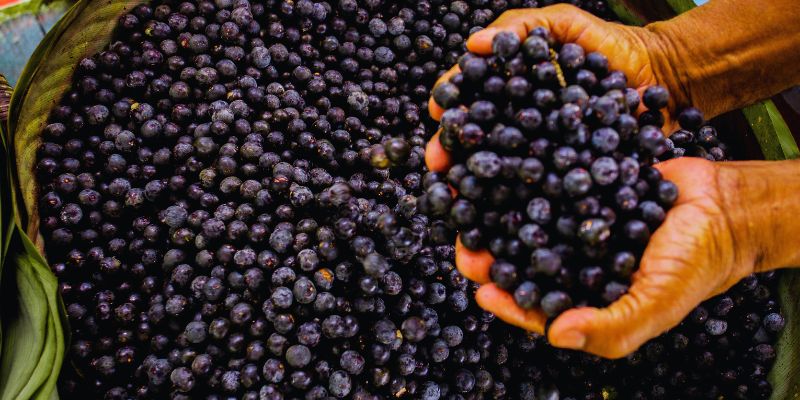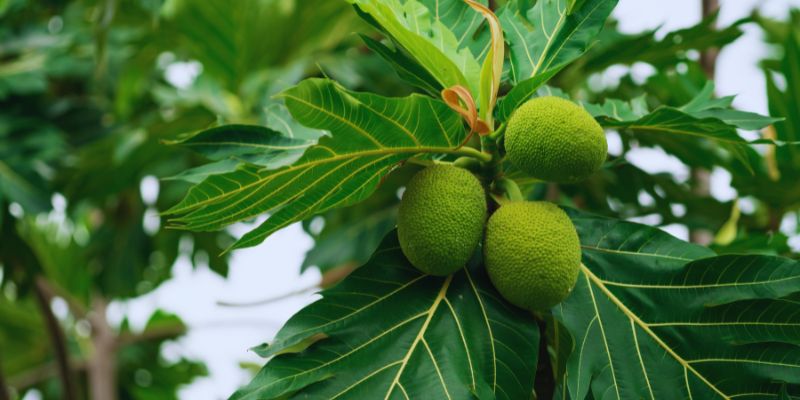Are you tired of eating the usual common fruits and want to try something different? If so, try exotic fruits like breadfruit, horned melon, and mangosteen. These fruits bring color and unique flavors to your plate and offer remarkable health benefits.
Acai, for example, is rich in antioxidants and can boost immunity. Likewise, jackfruit benefits your eye health, passion fruit protects cells from damage caused by free radicals, and durian can regulate blood pressure. You must be curious to try these exotic fruits and enjoy these countless benefits. But before that, don't forget to understand how these foods can dramatically enhance your health!
Must-Try Exotic Fruits for Health Improvements
Exotic fruits are tropical fruits that are uncommon in the global markets. These are nature's secrets to dramatic and magical health improvements, so you must try them out whenever you find them. We have compiled an exotic fruit list here, allowing you to learn about these rare and exotic fruits and their associated health benefits.
Acai
Acai is found in native South America and grows on palm trees. It is the size of a blueberry and has large, inedible seeds. The taste of acai is similar to that of wild berries and chocolate. It is packed with fiber and antioxidants, which improve your health, strengthen your immune system, and boost your cognitive function. Moreover, it reduces the risk of chronic diseases, such as cancer and heart disease, and slows aging. It is low in calories and fiber, helping you manage your weight. Add it to smoothies or mix it with granola to enjoy a nutritious meal.

Jackfruit
An interesting fact about jackfruit is that it is the world's largest fruit, weighing up to 100 pounds. The fruit originates from India and has gained much popularity in the market. The taste can range from neutral to sweet, depending on the fruit's ripeness. It is rich in vitamin C, Vitamin B, and potassium. It is a good source of zeaxanthin and lutein, which benefit your eye health. It aids in digestion and supports weight management. Moreover, it supports heart health and strengthens the immune system. It also keeps your skin healthy and fresh, reducing the signs of aging. The jackfruit is also beneficial for individuals with diabetes, as it improves insulin sensitivity and regulates blood sugar levels.
Breadfruit
Breadfruit is a staple fruit of the Pacific islands, and it is the size of a football. It is a starchy fruit that belongs to the Mulberry family. This sustainable crop, the staple food of tropical regions, is named after its bread-like texture when roasted. It doesn't have a strong flavor, but you can eat it in mashed or fried form as a potato substitute. The breadfruit is gluten-free and fat-free, rich in potassium and complex carbohydrates. You can get it from the farmer’s market or the Caribbean market. However, remember that before cooking, you should cut off the stem and place it stem-side down to drain any sap. You can prepare it differently by baking, boiling, or grinding it into flour.

Passion Fruit
It is a beautifully colored fruit that comes from South America. It is so named because of the five pleated flowers of the plant, which are seen as the symbol of Christ's injuries. If you enjoy eating guava, you will likely appreciate passion fruit, as they share a similar taste. It contains high amounts of potassium and fiber, with a single fruit containing only 17.5 calories. It also contains antioxidants, vitamin A, vitamin C, and polyphenols. It protects your body from free radical damage, improves skin health, and controls blood sugar levels. You can cut it in half, scoop the pulp, eat it, or strain it to make juice or sauce.
Durian
It is a Southeast Asian fruit with a custard-like flavor and a large size, reaching 18 pounds. It is also known as corpse fruit due to its unpleasant odor. This spiky fruit is packed with folic acid, vitamin C, iron, and potassium, which improves digestion and regulates blood pressure. Not only this, but it also boosts your immune system, making you more resistant to infections. The high antioxidant content helps reduce the risk of chronic diseases. However, please note that each cup contains approximately 357 calories. You can use it fresh or in desserts.
Horned Melon (Kiwano)
The horned melon, also known as kiwano, is a member of the cucumber family and originates from Africa. Its mild flavor is usually compared to lime or cucumber, with a hint of banana. You can use it in salads, turn it into smoothies, stir it into yogurt, or eat the green, jelly-like interior as is. The horned melon contains carbs, vitamin C, vitamin A, magnesium, iron, and phosphorus. It promotes healthy red blood cell production, controls blood sugar levels, supports proper hydration and bone health, and encourages healthy skin by stimulating collagen production.
Mangosteen
The tangerine-sized fruit comes from the Asian tropics. It has hard, purple skin on the outside and soft flesh on the inside, with a delicious and unique flavor and a hint of peach and banana. You can eat it fresh, in the form of jam or juice. It is rich in xanthones, which have anti-inflammatory and anti-cancer properties. A single cup of mangosteen provides approximately 12.5% of the daily value for fiber. It is rich in vitamin C, B12, B2, and B1, as well as manganese, copper, and other essential nutrients. It is beneficial for maintaining various bodily functions, including muscle contraction, immunity, DNA production, and nerve signalling.
Conclusion:
Eating exotic fruits is like embarking on an adventure, where every bite tells a story about a specific region. If you have never tried any exotic fruit before, you are missing out because these fruits have a distinguished and yummy flavor. Not only this, but they also offer various significant health benefits, including maintaining a healthy heart, strong bones, an active immune system, and fresh skin. So what else are you waiting for?












